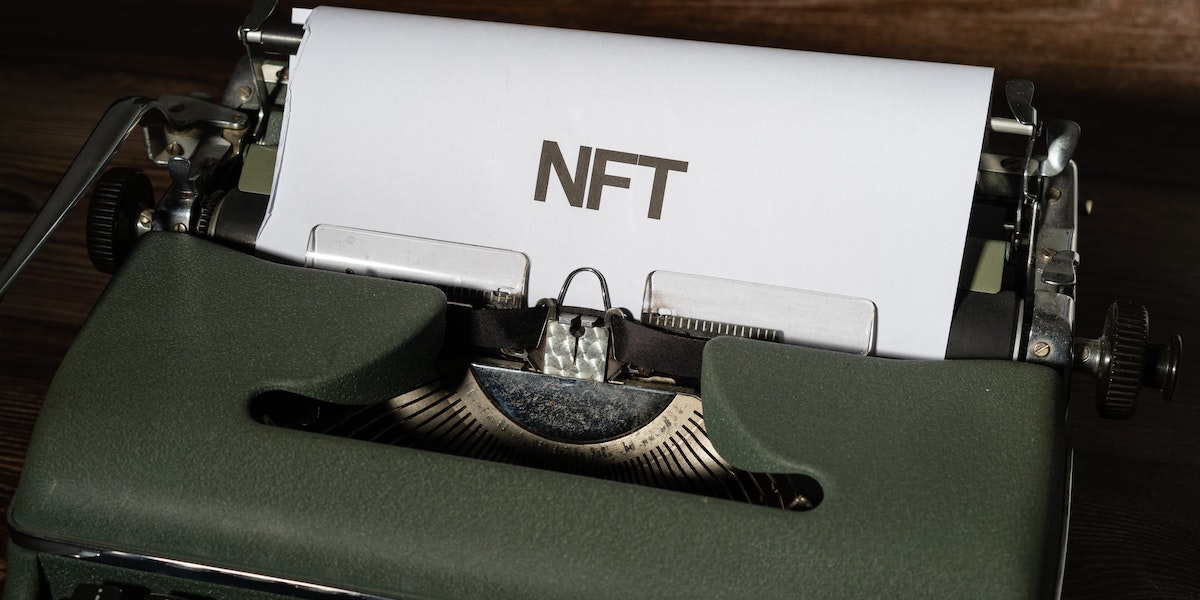NFTs have been in the headlines of the news for a long time. The growth of NFTs is skyrocketing and it has attracted the attention of netizens. Probably everyone has heard of NFTs once on their internet crawling journey. NFT marketplaces have played a very important role in the growth of NFTs.
Popular NFT marketplaces like OpenSea, Superfarm, and Rarible have become the center of funding and high revenue. NFT is turning every supportive technology into gold. NFTs provide the ability to have your own property in the form of a fully transferable digital token and the NFT space remains to concentrate on potential users.
Moreover, 50% of all recorded NFT sales are less than $200, showing that a large part of NFT growth occurs at a grassroots level. The first NFT was formed in the year 2014 by digital artist Kevin McCoy and coder Anil Dash. Let’s have a look at the definition of the NFT marketplace.
What Is NFT Marketplace?
In simple words, the NFT marketplace is a digital platform for buying and selling NFTs. The most important condition is that NFT should be in digital form except that it can be anything which is unique like music, photos, drawings, Twitter post, etc. All the NFT marketplaces are built on the magical technology called a blockchain.
It is a tailspin that makes NFT enthusiasts fearful of long-term investment. Let’s have a look at the working process of NFT marketplaces.
How Does NFT Marketplace Work?
When a person builds an account at the NFT marketplace, they get access to multiple functionalities like:
-
Mint NFTs
-
Browse the available options for sale
-
Store the NFT
-
Display their NFT
-
Add a payment method
-
Trade NFTs directly for a fixed price
-
Connect with creators, and join the community
When users buy anything, the NFT marketplace records it on its blockchain showing the change in ownership. Users don’t need to dive deep into blockchain technology to use the NFT marketplaces.
Blockchain is a beautiful technology that will transform the way we operate in the modern world. Let’s have a look at the development process of the NFT marketplace.
How To Development An NFT Marketplace?
When do you ask a question like “how a
NFT Marketplace development company develops? ”. Most probably when you have an interest in developing an NFT marketplace. The product development process remains the same.
1) Choose A Blockchain Architecture
The first step can be described as the most complex part of the process and for the good reason. When you go deciding on your NFT marketplace blockchain technology affects multiple areas of your venture. You can go with the most popular blockchain technologies like Solana or Ethereum, Cardano, or Polygon.
This route could be a little expensive for you as you will need employees to help you with the integration of these existing blockchains. After the initial integration, every transaction will cost you something. It is popularly known as the “Gas Fee” within the NFT space.
2) Decide Between Open Or Closed Market
The next step is to decide whether you want an open or closed NFT marketplace. A closed NFT marketplace utilizes a specific proprietary token. An open marketplace supports a wide variety of tokens. OpenSea is the most popular NFT marketplace around the world.
It supports more than 150 types of payment tokens currently. In an open market, anyone can create an account and start listing their items. Also, buyers won’t have to worry about NFT compatibility with a particular blockchain when they buy or sell digital assets.
3) Define Your Style
After you decide on the backend specs of your blockchain tech and market type, it is time to get to the front end of things. It will include the UX/UI design of your marketplace. It will include the experience that your users will get while using the marketplace. The design of your marketplace should be user-friendly.
4) Decide On A Commission Fee
After deciding how your marketplace will feel to your users it's time to decide on a profitable commission fee. Brainstorm about the monetization model that you will implement and how you will integrate it with your fees. Stay competitive and be careful not to overcharge as there are multiple competitors in this market. Users can easily switch to other providers if they will offer an affordable price.
5) Create Or Join A Community
As a first-time marketplace in a competitive space, you want to put an emphasis on connecting with your building and buyers. Once your marketplace and artwork are ready for users. Consider granting new customers access rights to an exclusive club to help further incentivize.
You can utilize traditional social channels or consider joining a platform like Discord.
How Much Does It Cost To Create A NFT Marketplace?
Now, you know the entire development process of an NFT marketplace, it's time to know about the cost of developing an NFT marketplace. Well, everything depends on the amount of work you put into developing the marketplace. For example, the cost will reduce if you choose to use a ready-made solution.
Starting an NFT marketplace with a popular clone script will save a lot of money and make it more accessible to startups and entrepreneurs. You can’t decide on an exact price without knowing all the requirements and specifications. Moreover, the fundamental elements of the NFT marketplace clone script cost around $100-$500K. Again this is also a dynamic amount.
Summary
You need to understand various key dynamics to develop an NFT marketplace and consider the psychology of the audience. You also need to have a team that can work in the backend to maintain the performance of the platform. The price can vary depending on the UI of your NFT marketplace.

